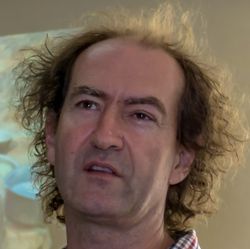On-site Wastewater Treatment Research
Domestic wastewater from over one third of the Irish population is treated in small-scale independent systems where connection to a sewer is deemed unfeasible. In such cases, the most prevalent treatment application is the conventional septic tank system with percolation area. A series of projects, funded by the EPA, have been investigating the performance of such on-site systems on seven different sites over the past number of years. The linked projects have been looking at the breakdown of on-site effluent (both septic tank and secondary) as it percolates through subsoil of different characteristics; evaluating the performance of different secondary treatment processes (particularly sand filters and reed beds); characterizing the quantity and patterns of domestic wastewater production and; assessing the efficiency of various distribution devices.




Prof Laurence Gill
Chair of Environmental Engineering
Email laurence.gill@tcd.ie Phone+353 1896 1047 Full ProfileBiography

Dr. Bruce Misstear
Adjunct Associate Professor
Email bruce.misstear@tcd.ie Phone+353 1896 1457 Full ProfileBiography

Research Interests
Environmental Geotechnics
